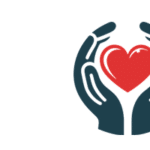Animal research has long played a vital role in scientific and medical advancement. However, it must be conducted with the highest ethical standards, ensuring scientific validity and animal welfare. The cornerstone of this approach lies in the 3Rs (Replacement, Reduction, and Refinement), a framework first introduced by Russell and Burch in 1959.
AAALAC International’s Commitment to the 3Rs
AAALAC International, a global leader in promoting humane animal care in science, recently issued a new position statement on the 3Rs and expects all accredited institutions to integrate the 3Rs into their research and educational programs. Here are key takeaways from the position statement as they relate to each of the 3Rs.
Replacement – Research and educational programs should use non-animal alternatives whenever they are scientifically and regulatorily acceptable. This includes validated in vitro models, computer simulations, and other systems. Even when animals are used, preference should be given to species with lower potential for pain perception.
Reduction – Using the minimum number of animals necessary without compromising research integrity is essential. Strategies like robust experimental design, statistical rigor, tissue sharing, and responsible breeding help achieve this goal.
Refinement – Research and educational programs should make every effort possible to minimize animal pain and distress while promoting positive experiences. Examples include social housing, enrichment, habituation, and positive reinforcement training. Continuous training for personnel on the latest refinement techniques is also critical.
Moreover, institutions are encouraged to build a proactive strategy for implementing the 3Rs. This includes incorporating them into protocols, veterinary care practices, and SOPs and fostering a culture of care led by the Institutional Official, Attending Veterinarian, and IACUC or oversight body.
Take Action: Empower Yourself with the 3Rs Certificate Course
Understanding the 3Rs is more than just a regulatory obligation; it is an opportunity to make a meaningful difference in the lives of animals and the quality of scientific research.
The 3Rs Certificate Course on CITI Program’s platform offers a comprehensive, five-module curriculum designed to equip learners with essential tools and insights for applying the 3Rs effectively. Whether you are a researcher, educator, or animal care professional, this course will empower you to:
- Enhance animal welfare across research settings
- Reduce animal usage while maintaining scientific rigor
- Explore valid alternatives to animal models
Join a growing community committed to ethical, humane, and scientifically sound animal research.







